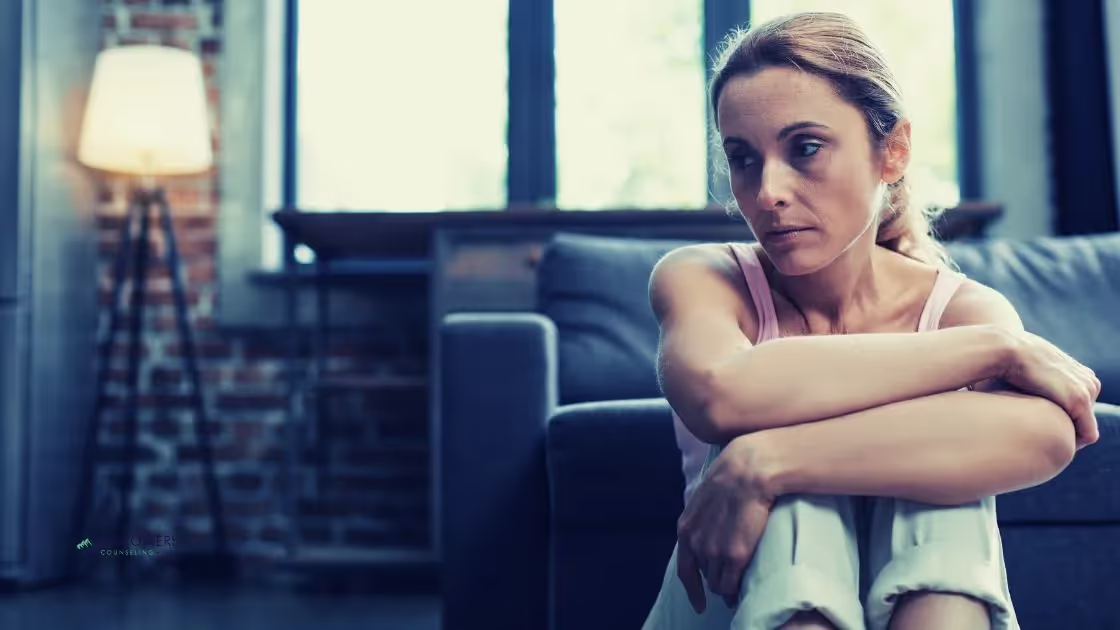Grief is a difficult experience nearly everyone will go through at some stage in life. However, we all grieve uniquely and heal at different points in our...

Grief is a difficult experience nearly everyone will go through at some stage in life. However, we all grieve uniquely and heal at different points in our grieving journey.
While some may take a few months to get over their loss, others may take over a year; this is entirely normal.
Nonetheless, knowing how to deal with being the only one still grieving can be difficult.
If you find yourself in this situation, one important step you can take is to allow yourself to feel.
It might seem tempting to want to hurry your grieving process or ignore your emotions just because everyone else around you is over it.
However, you must accept that your grieving journey is unique and acknowledge your feelings in order to heal.
Also, engaging in arts and crafts can help you manage your grief and express yourself in a safe space without fear or judgment from others.
Art is also an excellent form of grief therapy that can get you through your healing process.
Similarly, you can join grief support groups or lean on friends and family for emotional support.
Connecting with kindred spirits will make you feel less lonely in your grieving process and also create an opportunity to learn more about grief and effective habits you can imbibe to cope with grief.
Read on to learn helpful ways to deal with being the only one still grieving:
One way to deal with being the only one still grieving is to allow yourself to feel.
The pain of grief itself can be overwhelming and difficult to cope with; however, it can be more challenging when you try to suppress or mask your feelings.
Allow yourself to feel whatever emotions you want: anger, sadness, or even heartbreak.
Even when nobody else shares these feelings with you, you must know that the emotions accompanying grief are all valid.
Also, if you're having trouble finding someone to share your grief feelings with, journaling will greatly help you.
Journaling is an excellent way to cope with grieving alone, as it gives you the medium to express yourself and let out all your emotions.
In addition, "feeling" is crucial to your healing.
Hiding away from your feelings or pretending you're not in pain can hinder your healing process and worsen the type of grief you're experiencing.
Remember, the extent of your love for the deceased often equals the extent of your grief.
When grieving the loss of a loved one alone, art and craft is an excellent way to express yourself, release stress, and heal through your pain.
Thus, if you're finding it difficult to deal with being the only one still grieving, invest some of your time in various forms of arts and crafts.
For one, you can make DIY cards with old magazines, photos, or scrap paper around your home.
Making cards can help you ease your mind, relax, remain calm and heal as you cope with feelings of grief.
You can also make DIY cards for your lost loved one, telling them how much you miss and love them.
Also, you can create a book of memories filled with mementos and pictures of your loved one who passed away.
Piecing together memories you shared with your lost loved one will help you remember the special moments you had with them and also aid your acceptance stage during grief.
Similarly, you can create beautiful mosaics from broken plates.
Permit yourself to break some dishes into shattered fragments to create a beautiful piece of art, a patio tabletop, or a mosaic planter.
This activity will help you release some frustrations, sadness, or anger associated with grieving.
Self-care is important, especially when you're the only one still grieving a painful loss.
This is because, when the "expected time" of grief has passed, you might not have people looking after your needs or readily offering assistance as they expect you're done healing.
Thus, you must be your own guardian and look out for yourself.
When you feel overwhelmed with grief, take a break from your usual routines and enjoy a weekend away or a day out alone.
A long walk in the park or on beautiful trails provides the perfect nature therapy to help you sort your thoughts and relax.
Also, you can indulge in self-care at home.
You can watch your favorite series, have a spa bath, meditate, meal prep for the week, or journal.
Self-care doesn't have to be elaborate, so find simple activities that bring you comfort and add them to your weekly routine.
Grief can be exhausting and stressful, so you must care for your body during this period.
Creating a self-care routine will help you lessen grief's emotional and psychological impacts and heal quickly.

Being the only one still grieving after a painful loss can feel lonely and isolating.
You can find comfort in connecting with support systems like social groups, bereavement support groups, or talking to friends and loved ones close to you.
Most grieving people know what it feels like to lose a loved one and also how grief can impact one's life.
This sense of loss makes grieving people ferocious about supporting others in the same situation.
You're not as alone as you think!
Also, Support groups provide a safe environment where people experiencing grief can express their feelings freely, knowing others will be supportive, understanding, and non-judgmental.
Similarly, you get to learn new and effective stress management skills, coping skills, daily survival skills, and relaxation techniques from other grieving people.
Support groups provide an excellent opportunity for members to help and uplift each other's confidence and strength.
Dealing with loss is one of the biggest challenges one can experience.
While the pain of loss and grief isn't something everyone can fully move on from, keeping a grief journal will help in your healing process, especially when you're the only one still grieving.
Although nothing replaces the professional help you can get from an experienced therapist or grief counselor, journalling your feelings has great positive effects.
For one, writing about your feelings is a healthy way to recognize what you truly feel, process them, and slowly heal from them.
Also, by releasing your worries and fears into your grief journal, you significantly improve your emotional health, which means less anxiety, less stress, improved mood, better sleep, and a relaxed mind.
Holding on to feelings of grief, including sorrow, sadness, anger, etc., can affect your physical health.
When pent up, these feelings could lead to increased muscle tension, high blood pressure, and other health-threatening conditions.
Writing about your feelings will help you cope with pain long-term and allow you "let go" of these painful feelings.
You must note that during grief, healing occurs gradually; it cannot be hurried or forced.
There is no specific time frame for grieving, and the amount of time it takes to heal differs for each person.
Nonetheless, If you're the only one still grieving after experiencing a loss, there are beneficial tips to help you get by and cope with your grief. You can find grief support groups, keep a grief journal, care for yourself, engage in arts and crafts, and, more importantly, allow yourself to feel.
https://refugeingrief.com/2021/06/02/five-ways-to-manage-your-grief-and-loneliness/
https://www.mayoclinic.org/healthy-lifestyle/end-of-life/in-depth/grief/art-20045340
https://wearesololiving.com/why-self-care-isnt-selfish-when-you-are-living-alone/
https://www.mskcc.org/news/coping-grief-7-things-remember-when-dealing-loss
Complicated grief, also known as prolonged grief disorder, is when intense grief symptoms continue for an extended period, often longer than six months. This type of grief can result in difficulty resuming normal life activities and can lead to sleep problems.
There are many healthy ways to cope with the pain of a breakup. Some strategies include engaging in self-care activities, writing in a journal, reaching out to loved ones for support, and reframing your perspective. Additionally, seeking professional help can be an important step toward healing after a breakup.
There are many ways you can honor your loved one's memory during the holidays. You could decorate in their favorite colors, play their favorite music, make their favorite food, or even just talk about them often throughout the holiday season. You could also create a new tradition in their memory, such as planting a tree or making a donation in their name.
We offer a variety of specialized services, including individual therapy, group therapy, and various therapeutic approaches such as cognitive-behavioral therapy (CBT) or psychodynamic therapy.
There is no set timeline for overcoming a breakup. Everyone deals with grief in their own way and on their own time. While some may be able to move forward quickly, others may take longer. Remember that it's normal to experience a range of emotions as you heal and don't rush the process.
Dealing with someone who is addicted to drugs or alcohol can be difficult. It is important to remember that addiction is a disease, and the addict is not responsible for their behavior. You can offer support and understanding, but it is important to set boundaries. You can also get help for yourself through therapy or counseling.